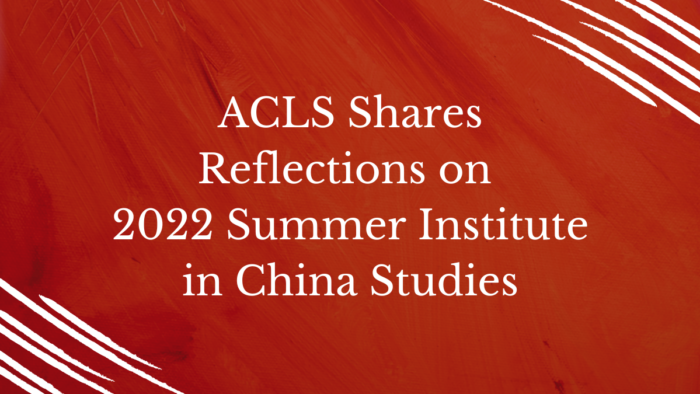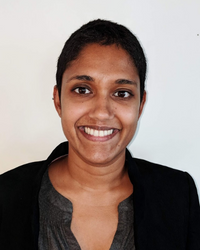

 With a new academic year in full swing, ACLS International Programs continue to evolve and grow, supporting humanistic scholarship in Buddhist Studies, China Studies, and East Central and Southeastern Europe, through fellowships, grants, and scholarly convenings.
With a new academic year in full swing, ACLS International Programs continue to evolve and grow, supporting humanistic scholarship in Buddhist Studies, China Studies, and East Central and Southeastern Europe, through fellowships, grants, and scholarly convenings.
When I joined ACLS in January 2022, the International Programs were in a transitional moment following the retirement of long-serving Director of International Programs Andrzej Tymowski in August 2021. Together with the long-planned wind-down of the African Humanities Program, which is being succeeded by the new African Humanities Association, as well as continued progress with the ACLS strategic priorities, this seemed an opportune moment for reflection on the future of our international work.
Last month, we held the third in a series of Global Engagement sessions with academic administrators, distinguished scholars (including ACLS fellows), and emerging scholars to discuss what this future could, and should, look like. This meeting built on the directions set by an ACLS Board of Directors advisory group in December 2021: fostering collaboration among individuals, institutions, and research networks around the world; convening scholars on transnational issues that benefit from comparative study; and initiating projects that build on our experiences in Africa, Eastern Europe, and Asian studies—with a view to expanding to other regions in future.
Based on these priorities, in March and September 2022, ACLS convened a diverse group of scholars based in the greater New York City area, who work across Latin America, Africa, Europe, and Asia, to think collaboratively about the best ways to connect scholars around the world working on topics of shared global concern. We asked them to consider ways ACLS could better support positive change in the academy, free academic enquiry, and promote the study of foreign languages and literatures—now hitting a historic low point in enrollment—as both tools of study and as critical foundational skills in a rapidly globalizing world.
While participants emphasized the importance of ACLS continuing to fund individual scholars to undertake curiosity-driven research, there was also a strong desire for funding and programming that encouraged partnerships across borders, continents, and disciplines.
While participants emphasized the importance of ACLS continuing to fund individual scholars to undertake curiosity-driven research, there was also a strong desire for funding and programming that encouraged partnerships across borders, continents, and disciplines. From international exchange programs, to sponsoring co-teaching for the development of diverse, globalized curricula, the proposed ideas are creative and compelling.
Scholars were also enthusiastic about the possibility of creating new opportunities and new networks between scholars and institutions who have historically lacked access to existing networks of elite institutions or funding—both in the US and abroad. This could mean building connections between institutions and scholars in the global South; prioritizing refugees, asylees, and underrepresented immigrant groups in the US; or linking US institutions—particularly Historically Black Colleges and Universities (HBCUs) and underfunded institutions—to smaller urban institutions in Asia and Africa.
Participants were also concerned with questions of equity, ethics, decolonization, and deterritorialization with respect to area studies. From linguistic justice to ethical community engagement and open-access research, we are mindful of the concerns that scholars of color and indigenous community groups raise.
We are excited about these ideas and deeply grateful to all those who participated in these engaging and informative sessions. Looking ahead to 2023, we look forward to start building on these valuable contributions to develop new international programs and strategies, and continuing to listen to and reflect with the communities we fund. We invite you to share additional thoughts and ideas on our international work.
Deena Ragavan
ACLS Senior Program Officer for International Programs
Deena Ragavan is a Senior Program Officer for International Programs. She helps design and implement activities supporting humanities and interpretive social sciences scholars and the communities in which they work. This includes contributing to the administration and management of peer-reviewed international fellowship and grant programs.